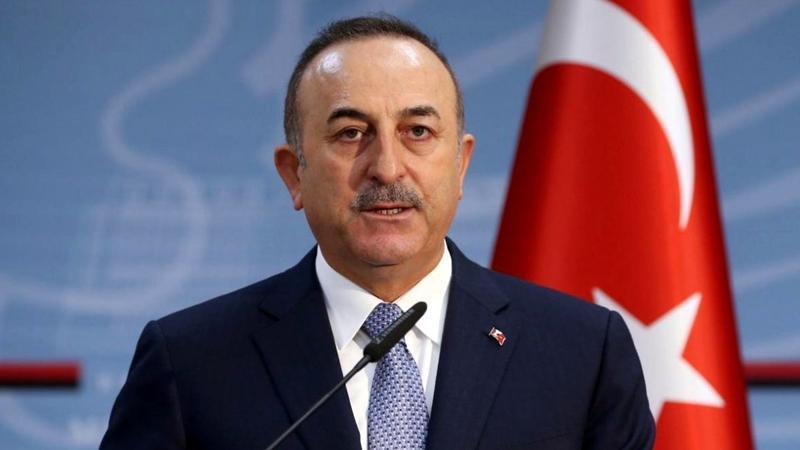
The Montreux Convention gives Turkey the right to close the Bosphorus and Dardanelles straits to warships during wartime, but Russia can still pass through the straits to return its fleet to its bases, Foreign Minister Mevlüt Çavuşoğlu has said.
Recalling Ukraine’s official request from Turkey to close the straits to Russian warships, the minister recalled that Ankara had implemented the provisions of the Montreux Convention without hesitation in every case.
Speaking to daily Hürriyet, the minister said Turkey, not being belligerent, can take “some measures regarding the countries that are parties to the war.”
“Turkey can stop the passage of warships through the straits. However, there is something special in the Montreux Convention. If there is a request for the ships of the warring countries to return to their bases, then they must be allowed,” the daily quoted the minister as saying on Feb. 25.
The minister emphasized that the relevant provisions of the convention will be applicable if the current case between Russia and Ukraine is declared as “war” by Turkey.
“If we accept the state of war legally, this process will start. Secondly, if we accept the state of war, we will prohibit the passage of warships [through straits] in the context of Montreux. But even if we bar them, the Russians have such a right,” Çavuşoğlu stated.
Ukraine conveyed an official request to Turkey to close the Dardanelles and Bosphorus straits to Russian warships, its ambassador to Ankara, Vasyl Bodnar, told reporters on Feb. 24.
According to the 1936-dated Montreux Convention, merchant vessels enjoy the freedom of passage through the Turkish straits, the Dardanelles and Bosphorus, while the passages of war vessels are subject to some restrictions which vary depending on whether these vessels belong to Black Sea riparian states or not.
Besides some general restrictions applicable to all, vessels of war belonging to non-riparian states are subject to specific restrictions such as those regarding maximum aggregate tonnage and the length of stay in the Black Sea.
However, the accord imposes stricter restrictions on times of war.
“Vessels of war belonging to belligerent powers shall not, however, pass through the Straits except in cases arising out of the application of Article 25 of the present convention, and in cases of assistance rendered to a state victim of aggression in virtue of a treaty of mutual assistance binding Turkey, concluded within the framework of the Covenant of the League of Nations, and registered and published in accordance with the provisions of Article 18 of the Covenant,” says article 19 of the convention.
“Notwithstanding the prohibition of passage laid down in paragraph 2 above, vessels of war belonging to belligerent powers, whether they are Black Sea powers or not, which have become separated from their bases, may return thereto,” says the same article.
‘Turkey made necessary plans for evacuation of nationals’
Elaborating on the evacuation of Turkish nationals in Ukraine, the minister noted there were nearly 20,000 Turks in the country.
Although flights from Ukraine to Turkey were cancelled, Turkey has planned the evacuation of Turkish students there, he said, noting that there were Turkish nationals who did not leave the country. Ankara has made the necessary work for the transit of its citizens to neighbouring countries, Moldova, Poland, and Romania, by road and agreed with Turkish bus companies to cover the costs.